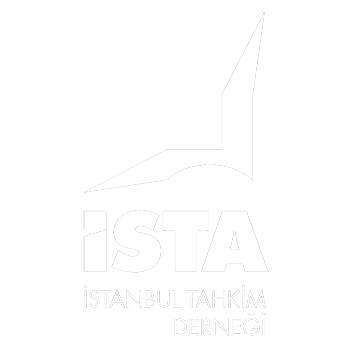
20 June 2020 Türkiye’de Tahkim Konusunda Uluslararası Makaleler
Why Would Due Process Not Be A Matter of Public Policy?
3 Haziran 2020 – The judgment of the Court of Cassation of Turkey (15th Civil Chamber, 26 September 2019, docket no. 2019/2474) seems to raise a delicate issue. One of the issues decided by the Court, the one on which these comments are made, was whether the arbitral tribunal, which had contradictory expert reports in front of it, had wrongly refused (it is assumed that it had been requested to do so) to appoint its own official expert and to conduct an onsite examination, what was within its authority. The Turkish Court of Cassation has really held that procedural issues do not belong to public policy, a breach of due process – which is generally considered one of the basic rights – would not offend public policy. If one reaches an extreme position, one might even say that no procedural public policy exists, what, with due respect, obviously may not be convincing
Yazının devamı için Lexology
Court of Appeal clarifies principles for determining law of arbitration agreement
4 Haziran 2020 – In Enka Insaat ve Sanayi AS v OOO “Insurance Company Chubb”, the Court of Appeal granted an anti-suit injunction restraining the defendants from pursuing Russian court proceedings in breach of a London arbitration clause. In reaching this decision, the Court of Appeal clarified the principles for ascertaining the law governing an arbitration agreement (the AA law) where the contract does not contain an express choice of the such law. In a departure from Sulamerica v Enesa, the court held that the general rule is that parties are taken to have impliedly chosen the law of the seat to govern the arbitration agreement, and that the law governing the main contract has little bearing on the AA law.
Yazının devamı için International Law Office
Governing Law of Arbitration Agreements: Welcome Clarity?
Tim Fox and Peter R. Morton – K&L Gates
The claimant (Enka) is a Turkish construction and engineering company with a substantial presence and history of operations in Russia. The first defendant (Chubb Russia) is a Russian company and part of the well-known Chubb insurance group.
Chubb Russia had commenced proceedings against Enka and 10 other parties in the Moscow Arbitrazh Court, seeking damages in relation to a fire in February 2016 at the Berezovskaya power plant in Russia with regard to contractual arrangements for Enka’s participation in building the power plant.
Enka issued an Arbitration Claim Form in the Commercial Court in London seeking (i) a declaration that Chubb Russia was bound by the arbitration agreement in the building contract and that it applied to the Moscow claim, and (ii) an anti-suit injunction pursuant to section 37 of the Senior Courts Act 1981 restraining Chubb Russia from continuing the Russian proceedings in breach of contract.
Mr Justice Baker at first instance concluded that Enka’s delay and failure to pursue arbitration in Russia were sufficiently strong reasons to refuse to grant an anti-suit injunction. However, his preferred ground was that the English court was not the appropriate forum in which to determine what he called the “real issue” between the parties, namely, whether the obligation to arbitrate disputes extended to the dispute over Enka’s liability in the Moscow proceedings. He concluded that the appropriate forum for that determination was the Moscow Arbitrazh Court.
Makalenin tam metni için: K&L Gates
Judge Says Turkey Must Address Criminal Charges In Doc Bid
Law 360
A New Jersey federal judge has ordered Turkey to address the relevance of pending criminal charges against a businessman being targeted in the country’s bid for information it says is needed in international arbitration over the alleged seizure of a newspaper, vacating an earlier court order.
Makalenin tam metni için: Law360



